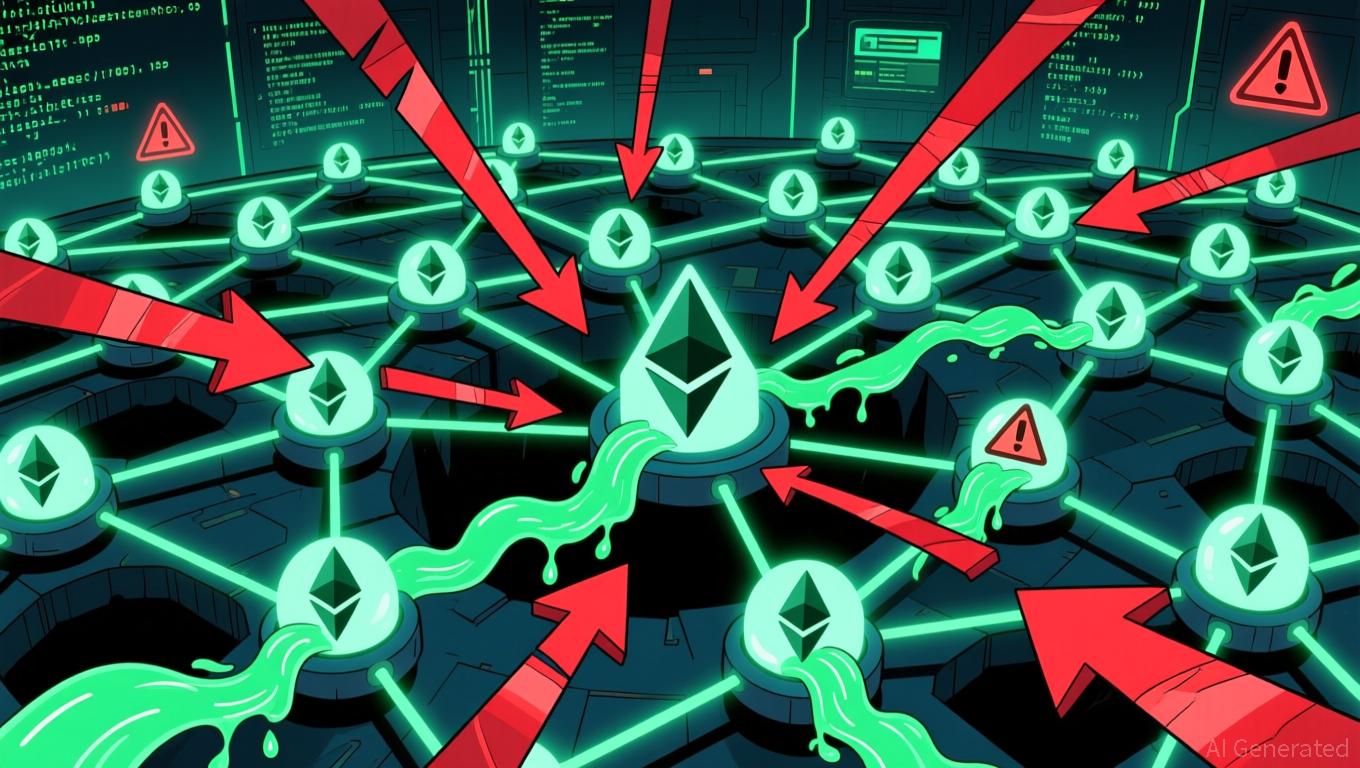Ethereum Updates Today: Does MEV Manipulation Constitute Cheating or Legitimate Strategy? Crypto Lawsuit Moves Toward Retrial
- Prosecutors seek retrial for MIT-educated Peraire-Bueno brothers accused of $25M Ethereum MEV exploit, with new trial set for late 2026. - First criminal MEV case highlights legal challenges in defining fraud within blockchain's decentralized systems, after deadlocked jury caused mistrial. - Prosecutors allege transaction reordering siphoned funds, while defense claims bots operated within Ethereum's "fair competition" rules. - Case could shape crypto regulation, with DOJ emphasizing MEV risks to blockch
Federal prosecutors in New York’s Southern District have called for a new trial for MIT alumni Anton and James Peraire-Bueno, who are accused of orchestrating a $25 million
The brothers are charged with wire fraud, conspiracy to commit wire fraud, and money laundering, each carrying a possible 20-year prison sentence if found guilty

The mistrial underscored the challenges of applying conventional fraud laws to blockchain systems. Jurors reportedly found it difficult to interpret technical evidence and legal standards, including whether “wrongful means” required intent to break the law
This case has significant ramifications for the broader crypto sector. The Department of Justice has stressed the importance of tackling MEV exploits, which are increasingly seen as a threat to blockchain scalability
The prosecution’s insistence on a 2026 retrial highlights the Justice Department’s resolve to pursue digital asset-related offenses. The upcoming trial is expected to focus more closely on technical evidence and the question of intent, with both sides likely to rely on expert witnesses to explain blockchain operations
The ongoing legal dispute involving the Peraire-Bueno brothers highlights the ongoing struggle between technological innovation and regulatory oversight in the crypto space. Their defense, supported by advocacy group Coin Center, warns that criminalizing unconventional validation techniques could destabilize decentralized networks
Disclaimer: The content of this article solely reflects the author's opinion and does not represent the platform in any capacity. This article is not intended to serve as a reference for making investment decisions.
You may also like
US Treasury authorizes staking in crypto ETFs

Dogecoin Holds Above $0.1712 as Recovery Triangle Nears Completion

Pyth Network (PYTH) Climbs 10.7% as Descending Channel Formation Tightens on 12H Chart

XRP Eyes Key 0.00001000 BTC Zone in Fresh Breakout Attempt
